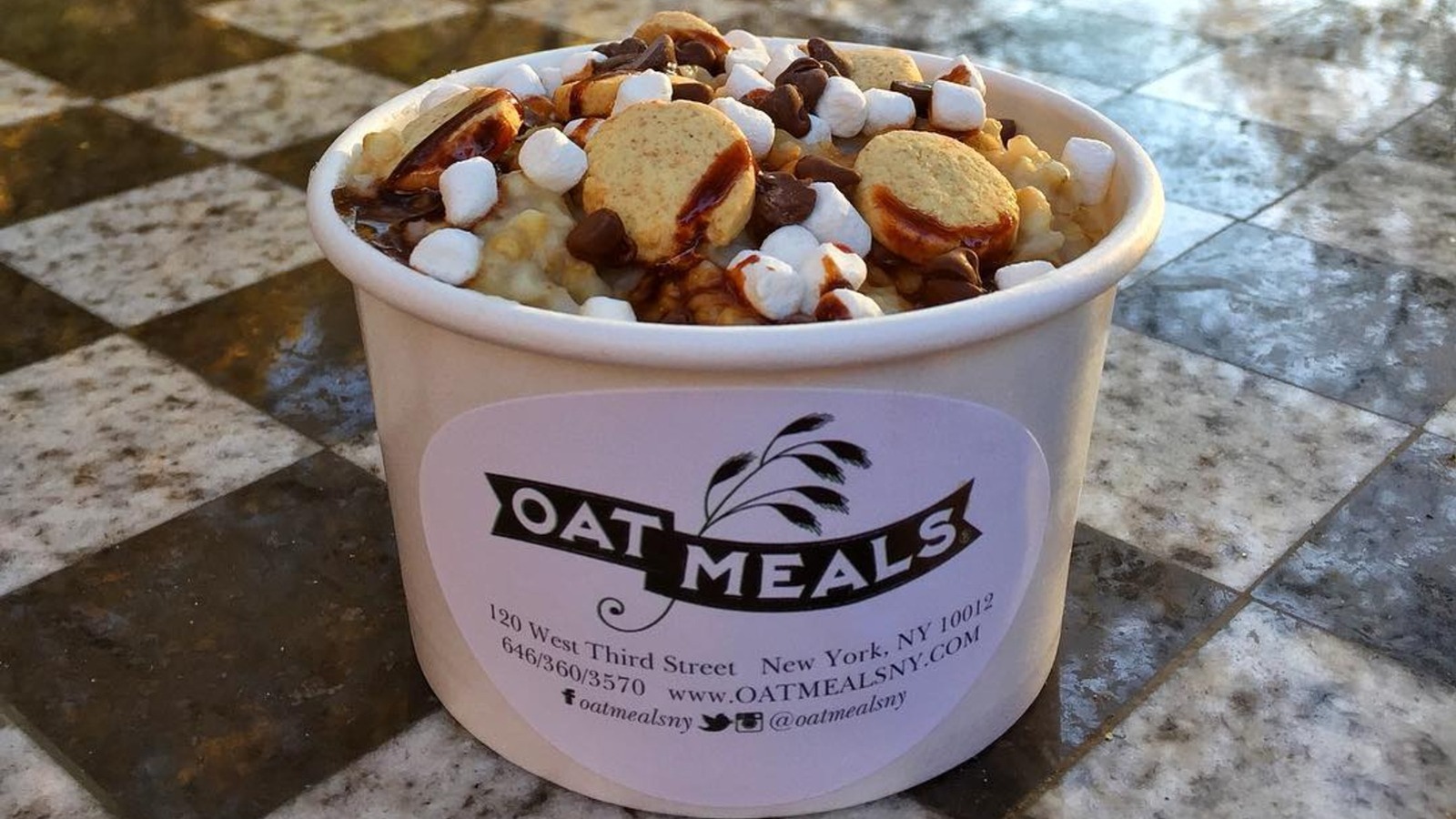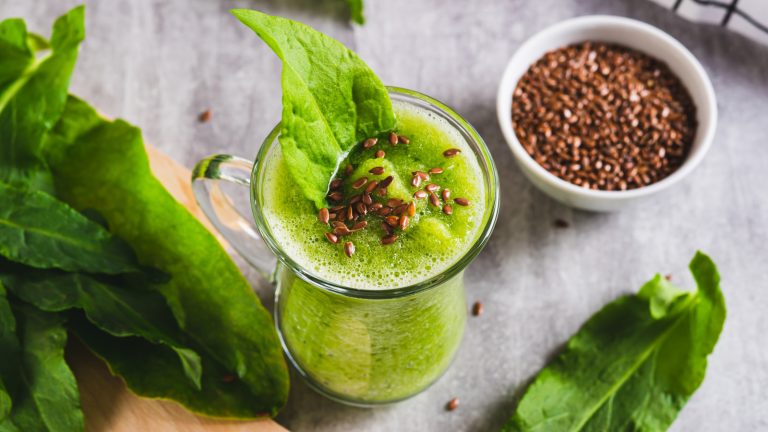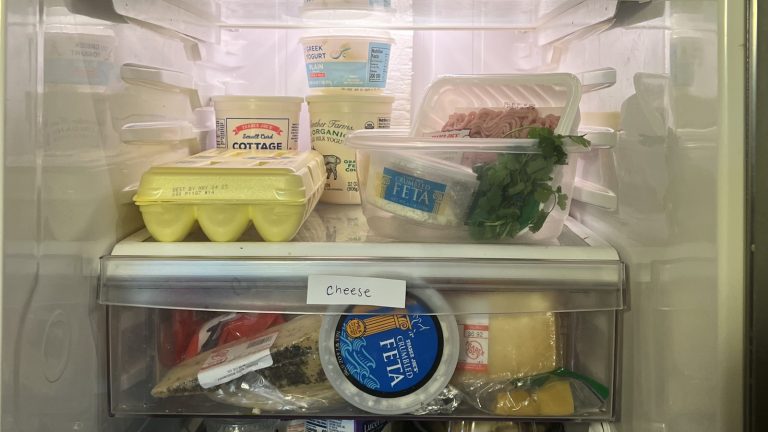Oatmeal is one of the most popular breakfast foods in the United States, and it’s easy to see why. It’s cheap, delicious, nutritious, and pretty convenient — especially as the choice of toppings can literally come from whatever is stocked in your pantry at a given time. But do you love oatmeal enough to eat it for lunch and dinner too? Samantha Stephens sure does. She first began experimenting with eating oatmeal for all three meals of the day in her student years, while on a budget and a weight-loss journey. Surprisingly, she found a big creative spark in that practice, and a business idea was born: A café that only sells oatmeal.
It took over a decade before the idea became a reality. Stephens dedicated her time to professional culinary and business education, all while working full-time in corporate America. Finally, in June 2012, OatMeals was born in the form of a small café in New York City that offered its customers a build-it-yourself oatmeal bar as well as 30 signature bowls to choose from and various oatmeal pastries. Because of Stephens’ experience with diversifying oatmeal, she created more than just the typical sweet breakfast bowls. Her lineup included many savory bowls that customers could grab for lunch or dinner, akin to our savory Nordic oatmeal. With the desire to expand the business beyond her single café, Stephens appeared on Season 10, Episode 7 of “Shark Tank,” which originally aired on December 2, 2018.
What happened to OatMeals on Shark Tank?
Stephens came on the TV show seeking a $500,000 investment in exchange for 20% of her company. The Sharks were all over the oatmeal bowls and loved everything they got to sample, but the enthusiasm didn’t fully carry into the numbers’ discussion. OatMeals made $2.5 million in six years, and Stephens admitted to taking a very small paycheck from her company, which concerned some of the Sharks. Kevin O’Leary had reservations about investing half a million dollars in a business with only one small location and doubted the profitability of oatmeal as anything but a breakfast item. Daymond John worried that it would take him 12 years to get his money back. They both opted out.
The two female Sharks saw potential in OatMeals but wanted to change its business model. Lori Greiner suggested going the retail route — package the product and get it into grocery stores and Starbucks nationwide. She had previously invested in Bantam Bagels, one of the best “Shark Tank” food products ever, and wanted to replicate the model. She offered Stephens the full investment contingent on a retail deal and asked for a 33.3% cut of the company.
Barbara Corcoran suggested a different approach, citing her success with Cousins Maine Lobster — create a cart business that serves breakfast and lunch to corporate America. She offered all of the money, no contingency, but wanted 50% of the business. Despite the other Sharks urging Stephens to go with Corcoran, the founder ultimately accepted Greiner’s deal.
OatMeals after Shark Tank
Right after the episode aired, OatMeals seemed optimistic about the deal it struck with Greiner. The company took to Facebook to share the chosen Shark’s favorite signature oatmeal bowl (pictured above) that she sampled on the show — the Truffle RisOATto, which is made with parmesan cheese, truffle oil, salt, pepper, and bits of bacon. But the excitement appears to have been short-lived. Some online sources say the deal with Greiner never closed, and while there has never been any official word on the matter from the two parties involved, we know that OatMeals never expanded into retail or to multiple locations. Instead, the business continued as it did before “Shark Tank” — serving oatmeal in the small 380-square-foot café.
The appearance on the show certainly drew in some customers for OatMeals, though. They could have their pick among the many signature bowls with fun names, such as the Elvis or the Devils Off Horseback. They could also build their own bowls, choosing between 80 toppings. The three bowl sizes were called Baby Bear, Mama Bear, and Papa Bear, ranging from eight to 16 ounces and costing between five and seven dollars, with two toppings included in the price. Additional toppings were going for $0.25, $0.50, or $1 for savory toppings that included bacon, various types of cheeses and oils, protein powder, and poached egg.
Is OatMeals still in business?
OatMeals continued to operate as normal for two years following its appearance on “Shark Tank” — and then Covid hit. Even before New York City was fully in lockdown, Stephens noticed a massive drop in revenue; within a single week, it dropped by a staggering 65% (per “The New York Times”) as people were taking precautions and staying home. Once restaurants were ordered to only offer takeout or delivery, OatMeals’ revenue dropped by 86%.
Stephens was desperate for help. She applied to multiple financial-assistance programs, only to hear nothing back or be rejected. Rent was due, salaries were due, and the money just wasn’t coming in. As a last resort, she set up a GoFundMe relief fund for her business and managed to raise over $8,500 through 134 donations, but the initial goal of $25,000 wasn’t met. By April 2020, the doors of OatMeals were closed and the employees were laid off, but there was still a firm determination to eventually reopen.
Come May 2020, the café did reopen for takeout and delivery, as the pandemic forced restaurants to prioritize convenience. By August, customers could once again eat their oatmeal bowls inside the shop, and things appeared to be returning to normal. On the back end, though, the business was financially impacted beyond repair. OatMeals officially closed its doors on January 24, 2021, but the company still sells granola through its online shop.
What’s next for OatMeals’ founder?
Despite the unfortunate closure of the OatMeals café, Stephens continues to be loyal to oatmeal. She has a partnership with Quaker Oats, the brand that made U.S. breakfast history, and was named their “Creative Oatmeal Officer” back in 2013. This collaboration continues, even after her own business closed, thanks to Stephens’ enthusiasm for the beloved pantry staple. She is also a champion of female entrepreneurs and loves to share her business knowledge and experience with others.
After OatMeals officially closed in 2021, creative oatmeal bowls continued to be posted on the brand’s Facebook page as a way to inspire people and provide them with ideas. The last inspo post was published in March 2022, but it looks like Stephens is far from done with her creative oatmeal journey. Still living in New York City, she is now curating a recipe blog and a cookbook behind the scenes, hoping to create an outlet for the recipes she developed through the years and bring more people into the fun oatmeal universe.





